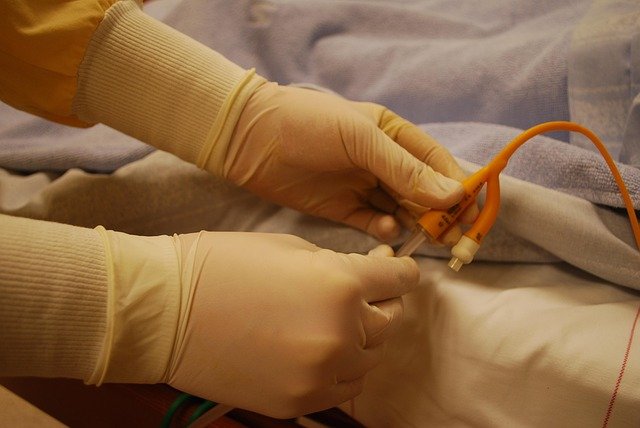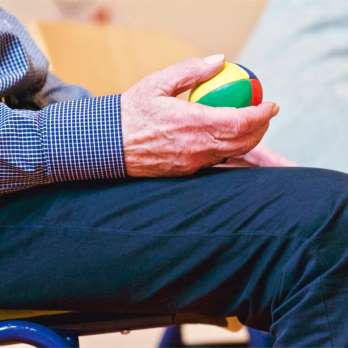Understanding Stomach Cancer Treatment: A Comprehensive Guide
Stomach cancer symptoms can include indigestion, nausea, abdominal pain, loss of appetite, or unexplained weight loss. Symptoms may overlap with other conditions, making early detection difficult. Awareness and medical evaluation are important for proper diagnosis.

Recognizing Stomach Cancer Symptoms Early
Early detection significantly improves treatment outcomes for stomach cancer patients. Unfortunately, stomach cancer often doesn’t cause symptoms until it has reached an advanced stage. Common symptoms include persistent indigestion, feeling full after eating small amounts of food, and unexplained weight loss. Other warning signs may include abdominal pain or discomfort, especially after eating, nausea or vomiting, and the presence of blood in stool or vomit, which may appear black or tarry. Recognizing these symptoms and seeking prompt medical attention can lead to earlier diagnosis and more effective treatment options.
Common Signs of Stomach Cancer That Shouldn’t Be Ignored
Several stomach cancer signs warrant immediate medical attention. Difficulty swallowing, known as dysphagia, may indicate a tumor blocking the passage of food. Persistent heartburn that doesn’t respond to antacids could signal something more serious than acid reflux. A feeling of bloating or excessive gas after meals, particularly when it’s a new symptom, may also be concerning. Advanced symptoms might include jaundice (yellowing of skin and eyes), ascites (fluid buildup in the abdomen), and severe fatigue due to anemia from internal bleeding. While these symptoms can indicate other conditions, persistent signs should always be evaluated by a healthcare professional.
How Stomach Cancer Symptoms Differ from Other Digestive Conditions
Distinguishing stomach cancer from common digestive issues presents a significant challenge. Many symptoms overlap with more benign conditions like gastritis, peptic ulcers, or irritable bowel syndrome. However, certain patterns may suggest cancer rather than these conditions. For instance, symptoms that progressively worsen despite treatment for other digestive issues warrant further investigation. Unexplained weight loss combined with digestive symptoms rarely occurs with benign conditions. Additionally, stomach cancer symptoms typically don’t improve with dietary changes or over-the-counter medications, unlike many common digestive problems. The presence of blood in stool or vomit almost always requires further medical evaluation regardless of other symptoms.
Diagnostic Approaches for Suspected Stomach Cancer
When stomach cancer is suspected based on symptoms, doctors employ various diagnostic tools. The process typically begins with a detailed medical history and physical examination. Upper endoscopy (inserting a thin, flexible tube with a camera into the stomach) remains the gold standard for diagnosis, allowing doctors to visualize abnormalities and collect tissue samples for biopsy. Imaging tests like CT scans, PET scans, and endoscopic ultrasound help determine the cancer’s extent and whether it has spread to nearby tissues or distant organs. Blood tests may reveal signs of anemia due to bleeding or elevated tumor markers, though these aren’t definitive for diagnosis. These comprehensive diagnostic approaches enable doctors to confirm the presence of stomach cancer and determine its stage.
Treatment Options for Different Stages of Stomach Cancer
Treatment approaches vary significantly depending on the cancer’s stage. For early-stage stomach cancer, surgical removal of the tumor and surrounding lymph nodes may be sufficient. This might involve removing part of the stomach (partial gastrectomy) or the entire stomach (total gastrectomy). For more advanced cases, surgery is typically combined with other therapies. Chemotherapy may be administered before surgery (neoadjuvant) to shrink tumors or after surgery (adjuvant) to eliminate remaining cancer cells. Radiation therapy uses high-energy beams to destroy cancer cells and may be combined with chemotherapy (chemoradiation). For metastatic stomach cancer, systemic treatments like targeted therapy and immunotherapy have shown promising results in extending survival and improving quality of life.
Managing Side Effects and Recovery During Stomach Cancer Treatment
Stomach cancer treatment often comes with significant side effects that require careful management. Surgical recovery can involve dietary adjustments, as removing part or all of the stomach affects digestion and nutrient absorption. Patients may need to eat smaller, more frequent meals and take vitamin supplements. Chemotherapy side effects commonly include nausea, vomiting, fatigue, and increased susceptibility to infection due to decreased white blood cell counts. Anti-nausea medications and proper nutrition support can help manage these symptoms. Radiation therapy may cause skin reactions at treatment sites and fatigue. Throughout treatment, maintaining good nutrition becomes particularly challenging but extremely important. Working with a nutritionist specializing in cancer care can help develop appropriate dietary strategies. Physical therapy and moderate exercise, as tolerated, can help maintain strength during treatment.
Emerging Therapies and Clinical Trials for Stomach Cancer
The landscape of stomach cancer treatment continues to evolve with promising new approaches. Immunotherapy drugs, which help the immune system recognize and attack cancer cells, have shown effectiveness in certain stomach cancer cases, particularly those with specific genetic markers. Targeted therapies that focus on specific molecular characteristics of cancer cells represent another frontier. For instance, drugs targeting HER2 protein show promise for stomach cancers that overexpress this protein. Several ongoing clinical trials are investigating combinations of these newer therapies with traditional approaches. Additionally, research into more precise surgical techniques and less toxic radiation methods aims to improve outcomes while reducing side effects. Patients with advanced or recurrent stomach cancer may benefit from exploring clinical trial participation, potentially accessing cutting-edge treatments before they become widely available.
This article is for informational purposes only and should not be considered medical advice. Please consult a qualified healthcare professional for personalized guidance and treatment.




